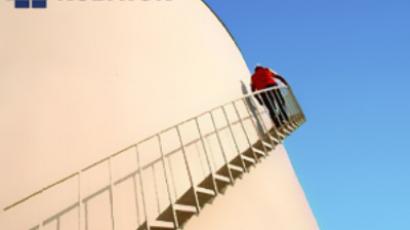Government mulls revised budget, as reserves cushion outlays
Russia’s government has received the latest draft of the revised 2009 budget, proposing a budget deficit of 7.4%, with keeping demand up a key issue.
To fight the crisis the government won’t reduce spending although low energy prices have halved its revenues. The budget deficit has risen to 7.4 % of GDP. This deficit is likely to last several years but Russia has enough money in the reserve fund to cover the deficit, according to Prime Minister Putin.
“We are going to cover the deficit in the civilized way, by using reserve funds. We are not going to print money – its senseless and simply dangerous. It would lead to growth of prices and deceive the population.”
The budget spending includes $50 billion to finance a package of anti-crisis measures. Its aim is to boost domestic demand and support the financial sector – keeping the inflation under 13% set in the budget. Banks will receive $9 billion to withstand growing volumes of non performing loans.
But the real challenge is to encourage demand according to Ronald Smith, Head of Research at Alfa-Bank.
“I think the best that we can hope for on domestic demand is to slow the rate of fall. You can’t really boost it per se, it is going down, it is down, its likely to go down further, unless the global economy recovers. So I think the best I think the government can really do is hold it up, this goes back to social spending – if someone has lost their job but they have some level of income coming from government support, then their demand will stay up.”
Within the next 10 days the government will discuss the proposed measures with Russian business and public organizations. On April 2 the budget and the anti-crisis package will be submitted to the State Duma. However even if the Duma approves the new budget, economists say it’s not the final version.
They believe the government will have to review the country’s main financial document within 4 months – especially if oil price stays above $50 or falls below $40/bbl.













